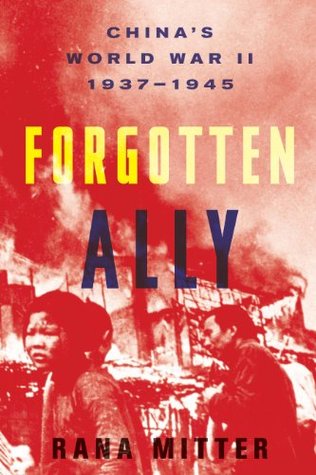Wang did not leave behind detailed personal writings, in contrast to Chiang’s diaries or Mao’s extensive notes and lectures, and we have come to understand him in later years through the eyes of others, such as Zhou Fohai.17 When war broke out in 1937, Zhou was deputy director of propaganda for the government.18 Even in the opening weeks and months of the war, Zhou had harbored doubts. He joined other political and intellectual figures who called themselves a “Low-Key Club” (Didiao julebu), the name indicating a desire to discreetly keep open the possibility of a negotiated peace with Japan.
...more
Welcome back. Just a moment while we sign you in to your Goodreads account.


